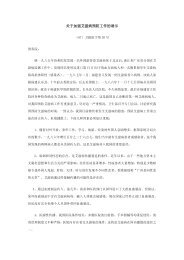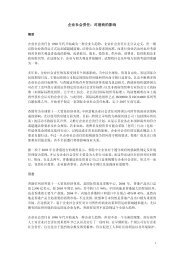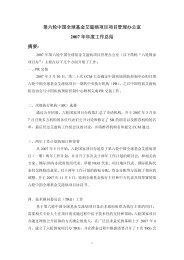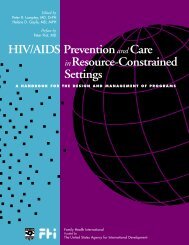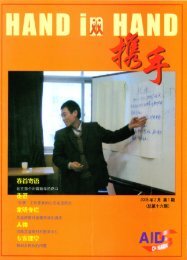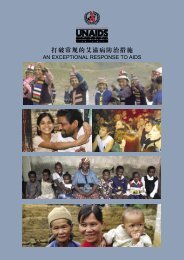The Training of Trainers Manual - UNFPA
The Training of Trainers Manual - UNFPA
The Training of Trainers Manual - UNFPA
You also want an ePaper? Increase the reach of your titles
YUMPU automatically turns print PDFs into web optimized ePapers that Google loves.
Day 2<br />
activities. <strong>The</strong> trainer points out that although the teaching may cover sensitive<br />
issues in some detail, it is in no way intended to tell people how to live their lives.<br />
<strong>The</strong>se sessions<br />
are meant to<br />
Word sense<br />
give people<br />
information<br />
Values represent what a person appreciates and esteems. If young people<br />
with which to<br />
have learned to value their health, for example, they will be more likely to delay<br />
make educated having sex or to practise safe sex.<br />
decisions and<br />
to build their<br />
Attitudes are a person’s feelings towards something or someone. In the<br />
capacity to help context <strong>of</strong> AIDS, tolerance <strong>of</strong> different lifestyles, rejection <strong>of</strong> discrimination<br />
and protect others and prejudice, as well as compassion and care, are very important attitudes.<br />
on the road to<br />
health.<br />
Most <strong>of</strong> our notions about human sexuality are influenced by sexual and gender<br />
norms, as well as by family and cultural messages that we received while growing<br />
up. It is important to recognize that our religious or non-religious upbringing may<br />
also play a significant role in our personal attitudes towards peer education and<br />
the issues with which it deals. All trainers and peer educators should therefore<br />
examine their own values and attitudes.<br />
Attitudes and values are not easy to teach or to measure. However, there are<br />
techniques, such as group discussion, case studies, or ‘values-voting’, that can help<br />
explore and influence people’s attitudes and values. Another technique is personal<br />
example – peer educators can act as ‘role models’. If, for example, one <strong>of</strong> the aims<br />
<strong>of</strong> a peer education programme is to encourage young people to be tolerant, the<br />
peer educators’ personal behaviour should reflect this attitude.<br />
Before beginning a peer education programme in any community, it is important<br />
to learn about the prevailing culture(s), traditions, and social norms. Without such<br />
awareness, there is a great risk <strong>of</strong> <strong>of</strong>fending people and losing their respect for you<br />
and your programme. A damaged reputation can have far-reaching consequences,<br />
and the impact may last for a long time.<br />
In some communities, a certain importance is placed on modesty regarding<br />
sexual matters. Immediately talking about sexual issues in very frank and detailed<br />
language might be a mistake. Some communities may also have concerns about<br />
programmes in which young women and young men participate together. It is best<br />
to move into this area one small step at a time.<br />
Section 2. Guidelines for <strong>Training</strong> <strong>of</strong> <strong>Trainers</strong><br />
57



